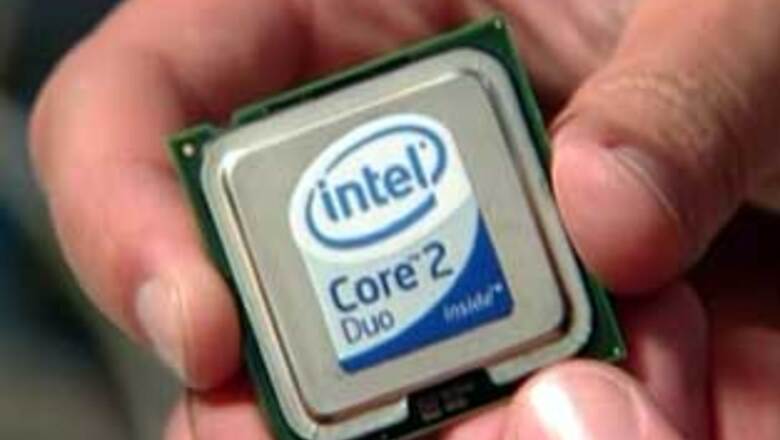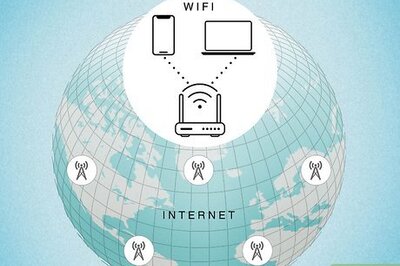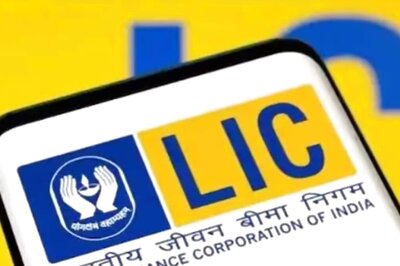
views
Brussels/San Francisco: EU regulators on Wednesday slapped a record 1.06 billion euro ($1.45 billion) fine on Intel Corp for antitrust violations and ordered it to halt illegal efforts to squeeze out arch-foe AMD.
Analysts say the move, which Intel CEO Paul Otellini vigorously contested, may help AMD recoup some of the market share lost to its bigger and nimbler rival over past years, but is not expected to radically transform Intel's operation.
The decision may also force US regulators to act, analysts say, with South Korea and Japan already accusing the company of antitrust violations.
Shares in Intel, which had slid 6 per cent since Reuters broke news of the impending sanction on May 7, closed at $15.13, down 8 cents or 0.53 per cent, while the Nasdaq fell 3 per cent.
AMD finished trade on the New York Stock Exchange up 3 cents, or 0.69 per cent, at $4.38. It had been up as much as 1.2 per cent earlier. The European Commission said the world's No.1 chipmaker paid computer makers to postpone or scrap plans to launch products using AMD chips, paid illegal rebates to encourage them to use Intel products and paid a retailer to stock only computers with Intel chips.
Intel argued the decision was based on weak evidence that must be reviewed on appeal to an EU court. "We do not have those kinds of conditions in our contracts. Our contracts are straightforward, consistent worldwide and they are volume-based: the more you buy, the less you pay," Chief Executive Paul Otellini said on a conference call.
"There is a significant amount of evidence that was either ignored or disregarded, or both."
The antitrust fine, imposed after an eight-year investigation, is the biggest the EU's executive Commission has imposed on a company. It surpassed the 896 million euro fine last year on glass maker Saint-Gobain for price fixing, and a 2004, 497 million euro penalty on Microsoft for abuse of dominance.
"Intel has harmed millions of European consumers by deliberately acting to keep competitors out of the market for computer chips for many years," European Union Competition Commissioner Neelie Kroes told a news conference.
Whither Intel?
Intel has invested more than 5 billion euros in Europe and employs more than 6,000 people there, mostly in Ireland, its fourth largest global manufacturing site. Otellini saw no change to its investment there.
PAGE_BREAK
Analysts said US-based Intel would be able to maintain its market dominance, but the EU's decision could help AMD boost its market share. "Intel's competitive advantage is not that they cheated or anything like that. It's that they are much larger than their smaller rival AMD. As far as long-term competitive advantage (goes), Intel still has it," said Andy Ng, an analyst at investment research firm Morningstar.
Others saw a historic decision that underscored the EU's determination to ensure dominant companies do not shut rivals out of the market. "The ruling is hugely important. AMD has been out there for the last five or six years screaming that Intel has been keeping them from getting free access to markets," said Insight 64 analyst Nathan Brookwood.
Kaufman Bros. analyst Shaw Wu said the EU ruling could potentially impact Dell because of its heavy reliance on Intel chips for corporate customers, but not better-diversified HP. A spokesman for Dell Inc said that the company has sold both Intel and AMD-based products for several years and that it cooperated fully with the EU investigation. Hewlett-Packard declined comment.
"When you look at HP, they've been the more balanced player, they use a fair amount of AMD maybe because of their consumer focus," Wu said. "But with Dell it's a little different, they've been very loyal to Intel."
The Commission ordered Intel to cease all illegal practices immediately. Otellini said in a statement it would appeal at the Court of First Instance, the EU's second-highest court. Kroes said the EU antitrust sanctions would be carried out immediately.
In a previous antitrust case against software giant Microsoft, the Commission froze its remedies during part of an appeal filed by that company. Intel's general counsel, Bruce Sewell, told reporters he was "somewhat mystified" and unsure what the company needed to change. He said Intel had not yet begun talks with the Commission on how to comply with its ruling.
"This is really just a matter of competition at work, which is something I think we all want to see, versus something nefarious," Otellini added.
The Commission said Intel must pay the fine, which represents 4.15 percent of the company's 2008 turnover, within three months of being notified of the decision. "The EC decision will signal a sweeping change in the IT industry," AMD's chief marketing officer, Nigel Nigel Dessau, wrote in a corporate blog.




















Comments
0 comment